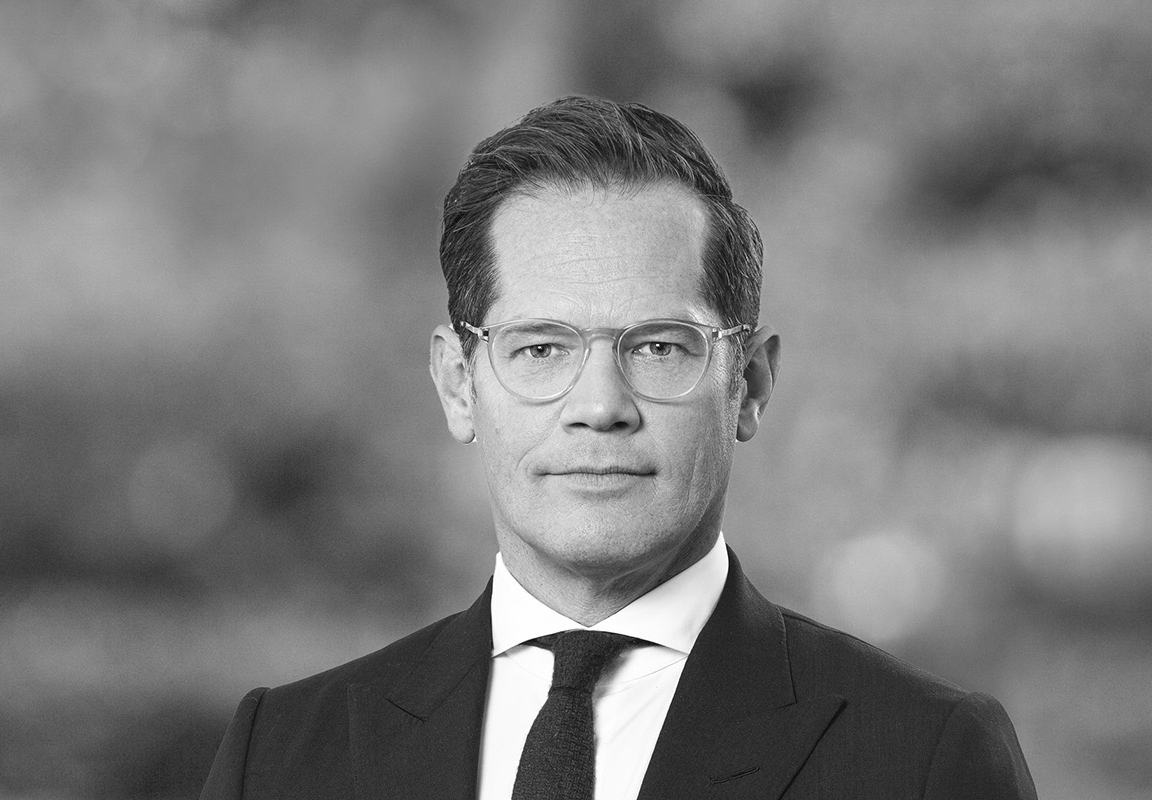
› Overview: Vigorous public M&A market accompanies boom in the German equities market› Number and volume of offers: Strong market, but delisting as new trend?
› Consideration: Exchange offers will remain the exception/premiums continue to be low
› Competing Offers: Private equity bidders’ takeover battle for zooplus› White & Case LLP: Public M&A advice in 2021
› Exemptions under the Securities Acquisition and Takeover Act (Wertpapiererwerbs- und Übernahmegesetz, WpÜG): Investor interests versus investor protection› Statements by the target company: Always positive and always issued jointly by management board and supervisory board? › Court decisions relating to takeover law: New decisions regarding consideration and, for the first time, preliminary legal protection in the form of an investment control procedure› Conclusion and outlook: The role of delisting in takeover law, exchange offers as an exception, the greater role played by activists and terms and conditions as showstoppers
Overview of the German public M&A market in 2021
The overall boom in M&A in 2021 was confirmed in Germany's public M&A sector, with a total volume of EUR 67.3 billion. Despite being influenced mainly by several special factors – including the trend towards delisting and realignment of the real estate market – this development is notable due to the very high company valuations seen in 2021. The DAX 30 (or the expanded DAX 40 since September 2021) increased by almost 16% over the course of the year, from 13,718 points at the beginning of the year to 15,884 points at the end of the year. The Coronavirus-related low of 8,441 points in mid-March 2020 was offset by almost continuous price increases in 2021. If and how the boom of 2021 will continue in 2022 remains to be seen in light of geopolitical turmoil due to the Ukraine crises and rising interest rates.
Number and volume of offers – delisting as new trend?
Given the extensive reporting requirements under capital market laws, access to the capital markets looks increasingly unattractive to many companies. Almost half of WpÜG cases in 2021 were filed with the aim of withdrawing from the stock exchange’s regulated market upon completion of a delisting offer. Whilst, at first glance, the boom in the public M&A market appears to be above average compared to prior years, with a total of 33 offers (and one prohibition), nevertheless 15 delisting offers were published (compared to only three delisting offers the previous year) and only 18 takeover or mandatory offers were published.
There is still a tendency to do everything possible to avoid a mandatory offer if acquisition of control is reached. In 2021, only three mandatory offers were issued, of which two were simultaneously delisting acquisition offers. Three additional takeover offers were also combined with a delisting offer. › Read more
Consideration and premiums
As in previous years, cash offers continued to be the norm in 2021. Due to the time and expense associated with an exchange offer, using shares as consideration has always been the exception since the WpÜG entered into force in 2002; however, it has definitely been the preferred method in the case of very large takeovers (e.g. Praxair/Linde in 2017, completed in 2019, and the unsuccessful takeover of Deutsche Börse by the London Stock Exchange in 2016). The main factors behind the view that exchange offers require excessive time and expense include the implementation of corporate actions to create the shares being offered and the need to draw up a prospectus. › Read more
Bidder structures and sectoral focus in 2021
Foreign investors were more active in the German takeover market in 2021 than in previous years. If one considers not only the bidding company's domicile, but also the origin of the main shareholder of the special purpose vehicle (SPV) used as the bidder, 76% of all offers (i.e. of a total of 25 offers) were published by foreign companies. Twelve of a total of 33 offers were issued directly by foreign bidders (without resorting to an SPV). In 12 cases, private equity companies acted as bidders. For private equity investors, despite the fact that the shares held are more fungible, in principle keeping a stock market listing is unattractive due to the likelihood of strategic restructuring and/or repositioning of the acquired companies. Four of the offers made by private equity bidders were (at least also) delisting offers (Battery Funds/Easy Software; H&F/ zooplus; Carlyle/Schaltbau Holding; Kublai – Morgan Stanley acting jointly with United Internet/Tele Columbus and Musai Capital/DEAG Deutsche Entertainment). › Read more
Competing offers
In the German takeover market, competing offers by several bidders for the same target company are the exception. Most recently in 2019, there was a takeover battle for Osram, in which the Austrian strategic bidder ams ultimately triumphed against the private equity bidder Bain & Carlyle. The end point in this case as well was Osram AG's delisting last year by ams. The multiple takeover battles between bidders Deutsche Balaton and Maruho for Biofrontera AG between 2018 to 2020 attracted less public attention.
Last year, the private equity firm H&F from the USA and Swedish investment firm EQT took part in a widely reported bidding war for zooplus. Only two weeks after H&F announced its EUR 390 bid, the target company confirmed that it had held "open-ended" discussions with EQT regarding a takeover offer. In the meantime, KKR had also entered the bidding war. Although major shareholders and management board members of zooplus had already previously offered 17% of zooplus' shares for sale to the bidder H&F, nevertheless a (customary) right of withdrawal in the form of a "fiduciary out" clause had apparently been agreed in the event another bidder offered a higher price and a better concept. › Read more
White & Case in the public takeover market
White & Case were themselves quite active as consultants on public takeovers in Germany in 2021. In transactions that finally became public, the law firm worked on the Aareal Bank takeover (volume: approximately EUR 1.7 billion) as adviser to Goldman Sachs, which was part of the consortium of bidders, along with Advent, Centerbridge, CPPIB and the LGT Group. White & Case also advised French automotive supplier Faurecia on the takeover of 60% of the shares of its German competitor Hella from the owner-families Hueck and Röpke; the total transaction volume of this public M&A transaction in 2021 (the second-largest after Vonovia/Deutsche Wohnen) was almost EUR 7 billion. Also noteworthy: Battery Ventures' support for the takeover of Easy Software AG and advice on foreign trade law and antitrust law to GlobalWafers in the takeover procedure for Siltronic AG (for more on this, see 2.3.(b)). › Read more
Further market trends in the German public M&A market
Influence on the takeover market by activist investors
Activist shareholders continue to influence listed companies, even in Germany, often changing the underlying conditions for public takeovers.
While formally, the takeover bid for Aareal Bank published in December 2021 by the trio of private equity investors Advent, Centerbridge and CPPIB failed because the minimum acceptance threshold was not reached, ultimately the failure was probably due to actions by activist shareholders. Both activist investors, Petrus Advisers and Teleios, had spoken out against the takeover bid from the outset despite having previously managed to get the long-standing chair of the supervisory board to resign. Petrus Advisers continued to insist on a carve-out of IT subsidiary Aareon from the Aareal Bank Group. At the shareholders' meeting in December, Petrus Advisers failed in its attempt to assert at least partial control over the supervisory board. The Frankfurt Higher Regional Court then appointed as substitute members of the supervisory board the individuals suggested by the bank. › Read more
Hedging takeover transactions through agreements prior to the transactions
In Germany, bidders continue to use the full spectrum to hedge a transaction through measures and agreements prior to a transaction. Most often, business combination agreements or investment agreements are concluded, while separate delisting agreements are also concluded prior to delistings. It is now common practice not to publish such preliminary agreements in their entirety. However, the main points in these agreements are summarised in the offer document.
Impact of terms and conditions on the success of the offer
(a) Minimum acceptance threshold
A minimum acceptance threshold has become a widespread standard condition in voluntary takeover offers. Ten out of fifteen takeover offers specified a minimum acceptance threshold of 50% or more; however, only in six cases was such a threshold actually reached or exceeded during the offer acceptance period. Vonovia's first attempt to take over Deutsche Wohnen narrowly failed, with an acceptance rate of 47.62% versus the offer condition of 50% of share capital. Publication of the second offer only two months later was possible only because, prior to the publication of the decision to issue this bid, BaFin exempted the bidder from the one-year blocking period stipulated in section 26 para. 2 WpÜG that applied due to failure to reach the minimum acceptance threshold in the first offer. During the second attempt, Vonovia amended the offer to waive the re-set minimum acceptance threshold and on the second attempt even reached an acceptance rate of 64.78% after the end of the offer period (thereby exceeding the original minimum acceptance threshold). In order to avoid jeopardising the success of the second takeover offer, Vonovia had also waived all other comprehensive closing conditions. › Read more
(b) Regulatory terms and conditions and the long stop date as show stopper
The significance of regulatory terms and conditions has increased sharply in recent years. This applies, in particular, to investment control procedures, as the sensitivity of the responsible authorities to foreign trade law has not only increased for political reasons, but is also reflected in reforms of domestic and European legal provisions. At European level, the EU Screening Regulation which entered into force in October 2020 provides for better coordination of foreign trade law among the 27 EU member states. The regulation is intended to promote harmonisation of various screening mechanisms at member state level, but does not confer any veto right or enforcement rights regarding transactions on the European Commission. Therefore, every member state continues to be responsible for investment control within its country – so national regulations will continue to vary accordingly. › Read more
Exemptions pursuant to sections 36 & 37 WpÜG
Pursuant to section 35 WpÜG, a party gaining control over a target company generally must submit a mandatory bid to the outside shareholders to enable them to divest. However, the WpÜG stipulates that, upon request, BaFin may exempt the bidder from the obligation to submit a mandatory bid provided that certain legally defined preconditions have been met. Such an exemption is generally possible as part of a discretionary decision by BaFin if a mandatory bid does not appear to be absolutely necessary in order to protect investors. › Read more
Statements by the target company
As in previous years, market practice has once again confirmed that the issuance of separate reasoned statements by the management and supervisory boards is the exception. In 31 out of 32 cases, a joint statement was published by both bodies, the management board and the supervisory board (in the case of HELLA GmbH & Co. KGaA, by the supervisory board and the general partner). The one exception was the takeover procedure for AKASOL AG by a bidding company of U.S. automotive supplier Borg Warner, during which, because of the dual role of the management board chairman, who simultaneously serves (at least indirectly) as the target company's largest shareholder, separate statements were issued by the management board and the supervisory board. › Read more
Judgments relevant to takeover law
In 2021, there were two cases in which the starting point for disputes involving takeover law was the consideration offered to shareholders of the target company. In addition, for the first time, the decision by the Federal Economics Ministry under investment control law pending in connection with a takeover procedure was subject of an administrative court case. › Read more
Conclusion and outlook
- In 2021, nearly half of all takeover procedures were related to delistings. It is quite likely that this trend towards retreating from the capital markets will continue and that once again, in future, listed companies' expanded opportunities for financing will no longer be regarded as an overwhelming advantage when compared to the voluminous catalogue of obligations these companies face. This will likely apply precisely because of the current crisis-related special factors in the capital markets which will further complicate efforts to meet forecast and transparency obligations.
- The liquidity requirements that the Frankfurt Higher Regional Court specified in early 2021 for shares intended to be offered as consideration as part of an exchange offer have been fully adopted by BaFin in practice and are reflected in the offer documents for the initial mixed offer and the offer with shares as alternative consideration. If BaFin continues to adhere to this practice, smaller bidders with a free float of < EUR 500 million and/or low daily transaction volumes will be permanently denied the option of using their own shares as consideration.
- Activist shareholders will continue to influence listed German companies, both within the context of takeover procedures and in the regular course of business (including with respect to currently topical ESG issues). Potential activities by these shareholders should be analysed in advance, even following a successful takeover.
- The year 2021 demonstrated once again that terms and conditions can jeopardise the success of a takeover bid. Even with a diligent preliminary audit, it is not entirely within the parties' ability to control whether regulatory screening procedures can be completed successfully. The minimum acceptance threshold has again proven to be a barrier to bidders. A careful examination of interests is therefore required before publishing an offer. Only time will tell whether Vonovia's strategy in its second offer for Deutsche Wohnen – of excluding from the outset any increase in the consideration offered – will be copied in practice to defend against investors who are speculating.
White & Case means the international legal practice comprising White & Case LLP, a New York State registered limited liability partnership, White & Case LLP, a limited liability partnership incorporated under English law and all other affiliated partnerships, companies and entities.
This article is prepared for the general information of interested persons. It is not, and does not attempt to be, comprehensive in nature. Due to the general nature of its content, it should not be regarded as legal advice.
© 2022 White & Case LLP







